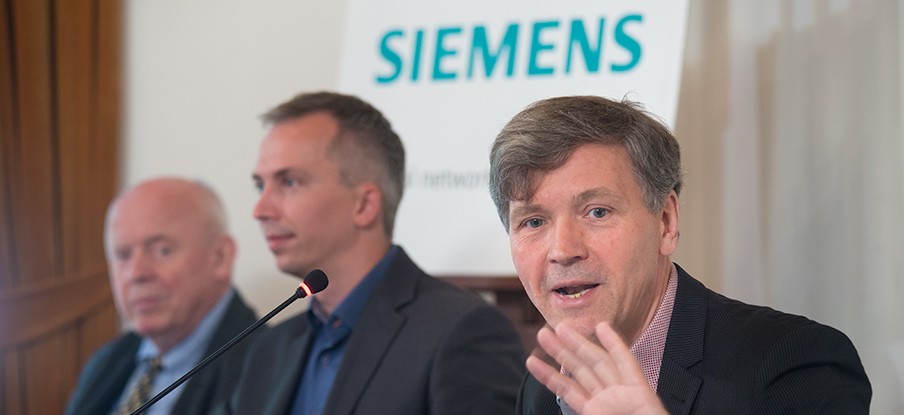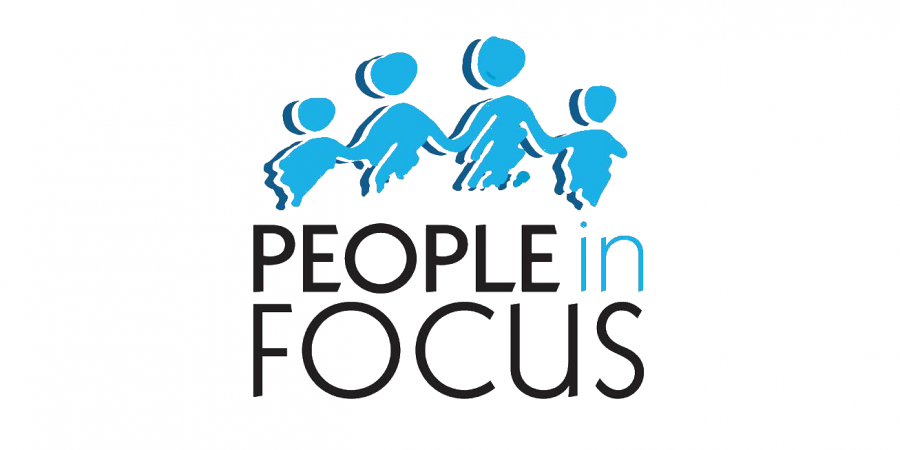
Approaching to the end of the Visegrad Summer School the participants could discuss about the power of words and propaganda in the media with writers, journalists and academics such as Ziemowit Szczerek, Samuel Abraham, Wojciech Przybylski and Karol Szyndzielorz.
In the beginning there was an interview between Ziemowit Szczerek the author of “Siódemka” (Seven), whose title refers to the Polish national road number 7 from Krakow to Warsaw through Radom. He talked about the mystical nationalism and post-imperialistic nostalgia not only in Poland but also in Ukraine or Russia. He mentioned that Every time Poland tries to establish something for itself to become a quasi-civilization, because it want to be former empire for the region. Unfortunately, because of the country's economic weakness it can not be a leader of Intermarium.
“Russia is doomed to rule this part of Eurasia” – the writer stressed but also said that Russia will never admit that is implementing the idea of Russkiy Mir. He mentioned about controversial Aleksandr Dugin theory. “Poles love to hate this idea” – he said and called the Russian politician “a geopolitical terrorist”. Ziemowit Szczerek showed that only in theWestern and Central Europe people see the contradiction in mixing narrations characteristic for the Soviet Union and the Imperial Russia.
“Russian is a steampunk empire, where the line of pastiche and what is real is blurred” – sumed up this part of interview the moderator Jakub Majmurek and start the discussion with the participants, who asked many questions about the role of religion or corporations in creating national identity and the difference between the values of EU and post-Soviet states.
Media or propaganda. Freedom and responsibility
The second part of the lectures were dedicated to the importance of free media in nowadays world. The debate between Ziemowit Szczerek, Samuel Abraham, Wojciech Przybylski and Karol Szyndzielorz was moderated by the director of the Villa Decius Association, Danuta Glondys.
Wojciech Przybylski started the discussion about the influence of the Internet on society and the press on democracy. “Good free media need a society which have a sense of trust and shame” – he stressed. Unfortunately, as mentioned Samuel Abraham, the freedom is usually overused when at the same time there is a lack of the responsibility. “Only the combination of this two ideas could be understand properly, separate they are just empty terms” – he mentioned.
Karol Szyndzielorz presented the clash of journalist ethics and media in practice. “The first victim of wars is truth” – he admitted in reference to the information war in Ukraine. “Media are greatest enemies of politicians but also supports. Who would tell us the truth – the media?” – he asked. Samuel Abraham also admitted that the media are good for oligarchies and Wojciech Przybylski added the real problem is when journalists write for money what nowadays is quite popular. “Who controls truth, controls everything more or less” – mentioned the Turkish writer Aslı Erdoğan.
In the end of debate the participants asked about thecurrentissues such asdifference between journalists and civil activists, tracking fake information about Ukrainian crisis or Estonian case, which showed the problem of responsibility of the websites owners. “Journalism might dying but definitely is not dead – so be skeptical but not cynical during reading press information” – recommended Samuel Abraham.




































